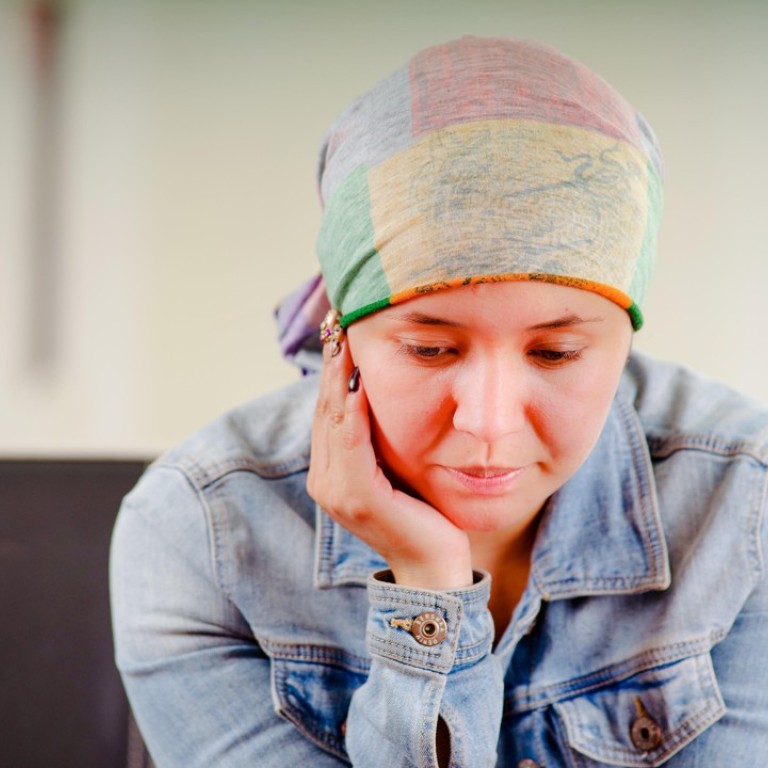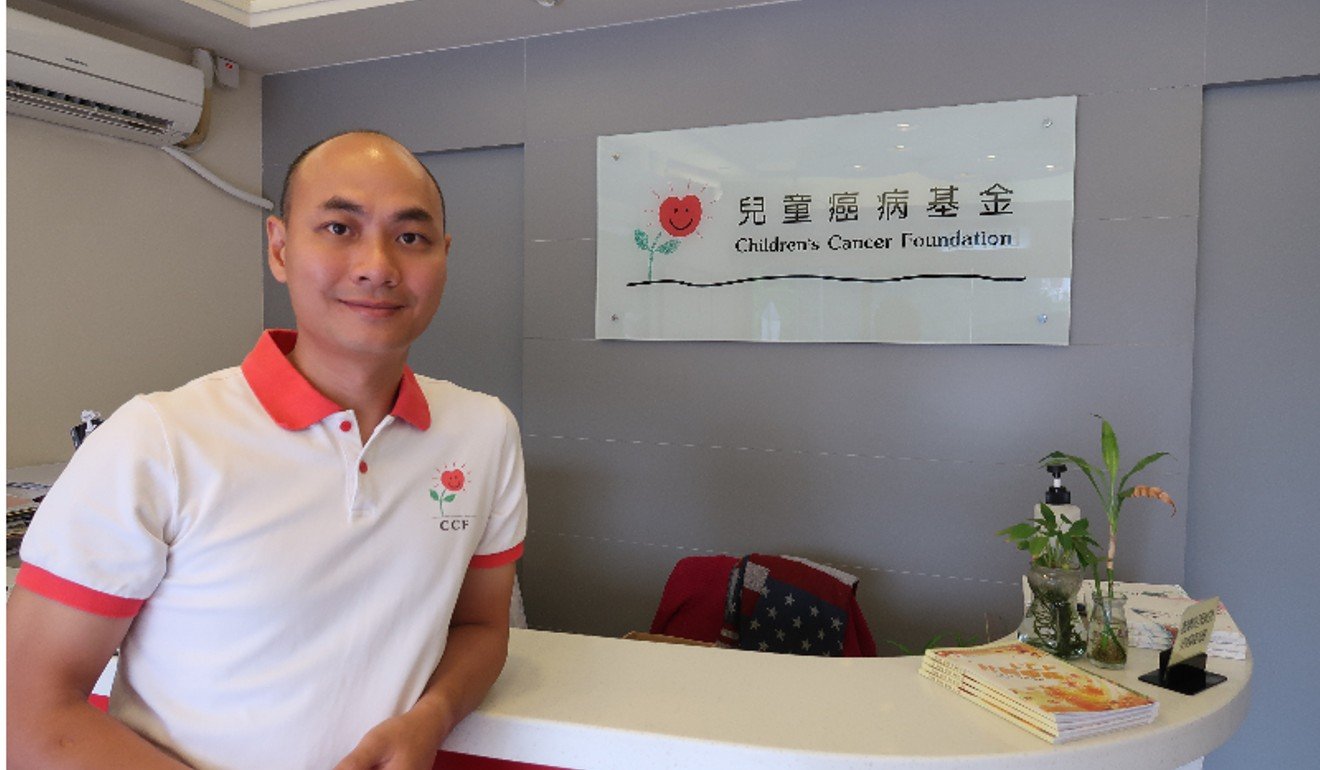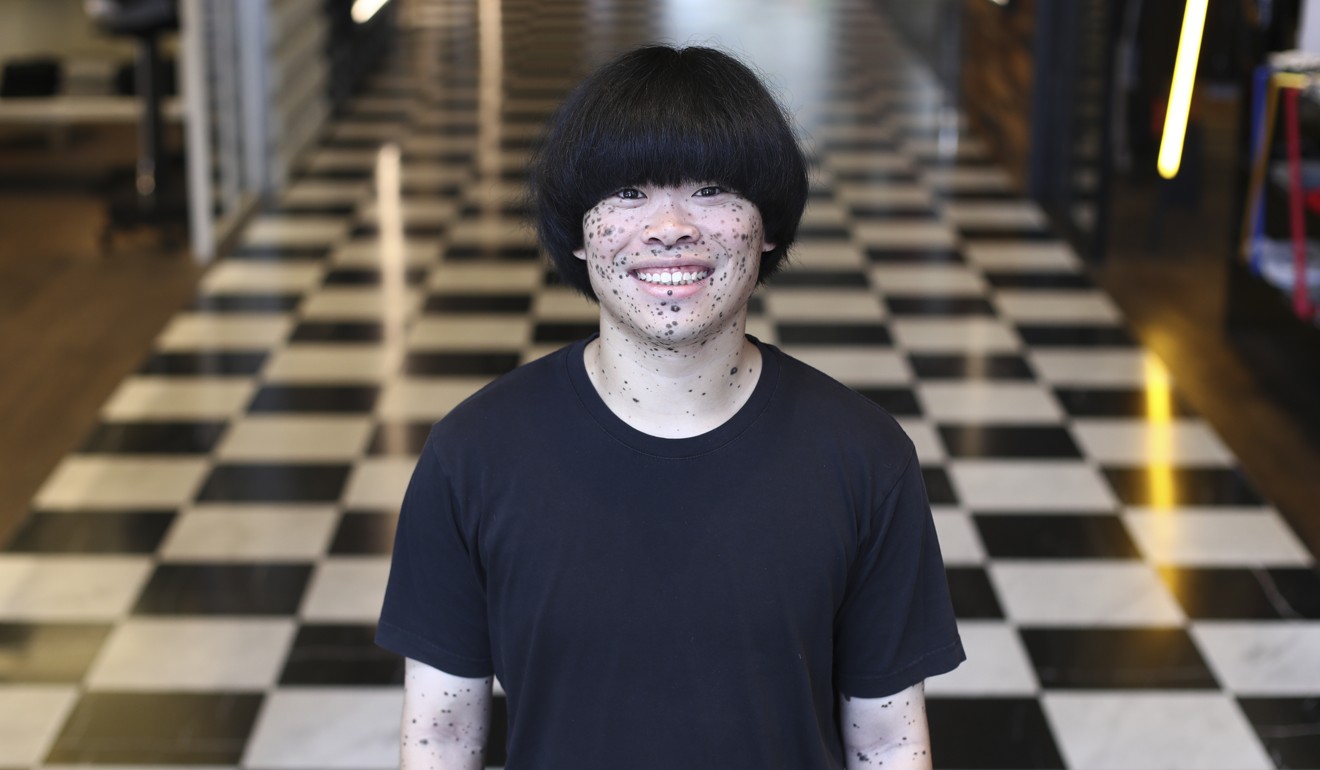
Young cancer survivors’ challenges: staying positive, making friends, returning to school
- New research finds link between young cancer survivors’ ability to envision their futures and their risk of illnesses such as depression
- However, experience in Hong Kong suggests most face more mundane challenges
Even after getting a clean bill of health from doctors, young cancer sufferers still have to battle the mental aftermath of grappling with the disease. For some, that can cause psychological issues down the line.
A recent study by the University of New South Wales in Sydney found that young cancer survivors found it more difficult to envision their future lives than their cancer-free peers, putting them at risk of mental health disorders later in life.
The researchers examined 77 young cancer survivors and 62 young cancer-free participants on their autobiographical thinking – such as their memories and imagining their future – and whether such personal narratives were associated with distress later in life. They reported a link between aspects of their autobiographical thinking and their vulnerability to conditions such as depression, post-traumatic stress disorder and complicated grief.
The study found that young cancer survivors remembered their past more negatively and in more illness-focused and vivid ways than their cancer-free peers. However, while their imagined future lives were similarly more illness-focused, they were not as specific or detailed as those imagined by participants who had not had cancer.
“It is possible that young cancer survivors who have recently experienced life-threatening illness may avoid thinking about their futures in great detail because this is anxiety-provoking to them,” said Dr Ursula Sansom-Daly, the study’s lead researcher, in a statement on the study published in Psycho-Oncology.
Hong Kong student cancer sufferer on making the most of her life
The study suggests that helping young survivors imagine their future lives in more detailed ways may help protect them against distress later in life.
However, the survivorship experience is different for everyone. In Hong Kong, experts play down such risks among young cancer patients in the city.
The Children’s Cancer Foundation in Hong Kong does not have official statistics on the mental health of its patients as they age. Chris Ng, the organisation’s community service manager, says that while young survivors may face more challenges, he does not think they are more at risk of mental health problems than others.
“In our experience, some survivors do very well in their life – they achieve their academic goals, graduate from university and get a decent job,” he says.

For nearly three decades, the Children’s Cancer Foundation has been providing care services for cancer patients under 18 and their families. It continues to care for these patients when they reach adulthood. Ng, for example, still helps cancer survivors in their thirties.
According to Ng, some survivors have physical and psychosocial limitations associated with the disease that limits their development. Those that beat brain cancer, for example, may suffer irreversible side effects from treatment. “But I see some of these survivors still lead a proactive life where they share their struggles to help others,” he says.
Even some of those who cannot find employment volunteer their time to help sufferers and encourage them to overcome their challenges. “Even if they have physical limitations, some have high resilience and go on in life in their desired way and even help others,” Ng says.
Other young people [who have not confronted cancer before] do not understand their condition, but having survivors as peers helps them understand their own limitations and challenges
The foundation hosts programmes to help young cancer fighters boost their resilience in the face of challenges. Exercise training sessions, for example, include running races as a way for youngsters to set and achieve goals, as well as boost their physical health and confidence. Meanwhile things like music classes and handicraft activities provide psychological and social support, and help to develop their interests.
“Some have advanced skills and make good handicrafts which they sell through social media,” Ng says.
Most of all, these programmes provide opportunities for young sufferers to befriend other survivors and garner social support. “Other young people [who have not confronted cancer before] do not understand their condition, but having survivors as peers helps them understand their own limitations and challenges,” Ng explains.
From needing care to carer: cancer survivor becomes doctor
The foundation runs a case-management service in which it follows up on cancer survivors grappling with more complicated situations.
“Some [people] do get diagnosed with depression, for example,” Ng says, explaining that social workers would follow up with them to check on their progress and help them access social community resources, counselling or psychiatric support. But he says they do not have many such cases, with the more common challenges among young people being resuming school life and making friends.
According to Ng, fostering and building resilience in young cancer survivors is key. This can take many forms: from their capacity and skills and their confidence in managing life challenges to the support they receive from others. “Resilience is very important to our survivors,” he says.
William Chan Wai-lam (aka William Outcast), who was diagnosed with a rare and lethal form of skin cancer at birth, has faced his share of challenges in his life. Doctors warned he would die at an early age, although he is still alive and well in his mid-thirties. He harbours a strong and resilient outlook that has helped him become a rock for many young cancer patients in the city.

Chan says that during his youth he cared little about the future, having been told he would die young. This liberated him from pursuing the typical goals expected of Hongkongers, such as getting a job and buying a house.
“I think many people who don’t have cancer and have this [regular] life have mental problems just because they didn’t think about their future [properly],” Chan says.
He suggests the Australian study should focus less on the future elements. If young people with cancer let go of typical expectations from society, “they can get back and create their own future”, he says.
Chan acknowledges that sometimes he gets depressed and unhappy, among other negative states, but he believes these are cycles people go through, just as they do through feelings of love, happiness and other positive emotions. It is part of his philosophy that high moments are followed by low moments and it is all part of being human.
Cancer sufferer stages own funeral
Last year Chan started the charity Say Yeah, which offers supports to young people in need, including cancer patients and those contemplating suicide.
“At my NGO, I have some cancer people asking me to help them deal with their dreams and help make their last wishes come true … Just like I do in my life, I push them to create their own future and to make it happen,” he says. “Whatever you want to do in life, just make it happen – if you love it, like it, want it, make it happen. It’s that simple.”
For more information on support for young cancer survivors, contact the Children’s Cancer Foundation at +852 2319 1396 or visit ccf.org.hk.
For more information on Say Yeah, visit sayyeah.org.hk or email [email protected].

